Events
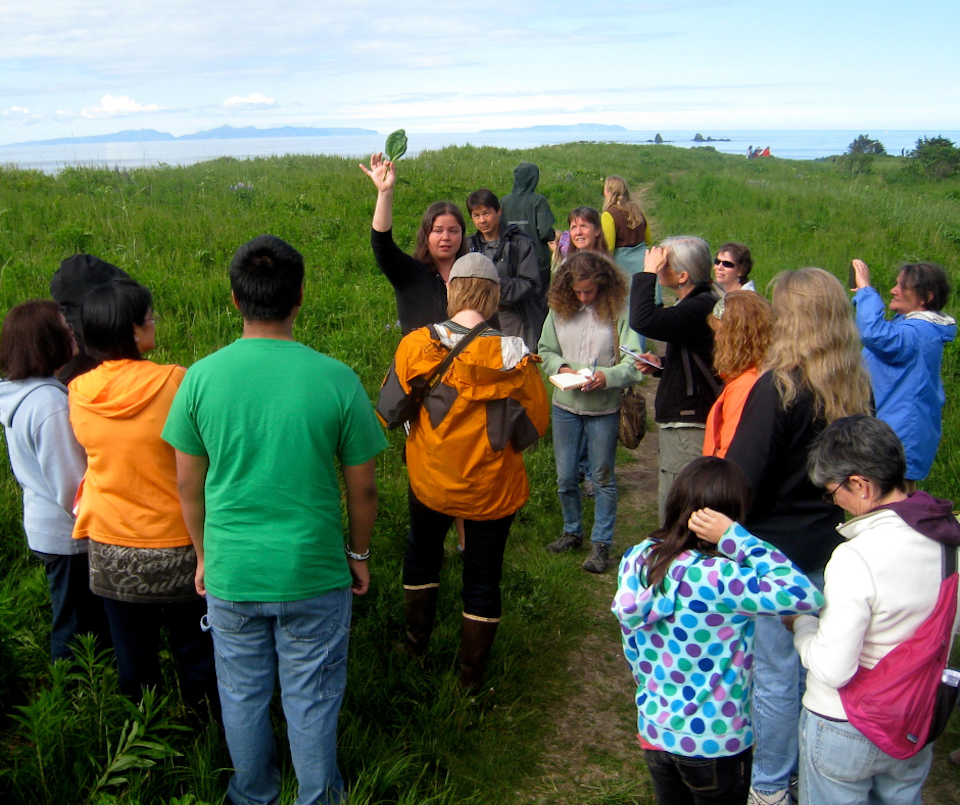
Plant Walk
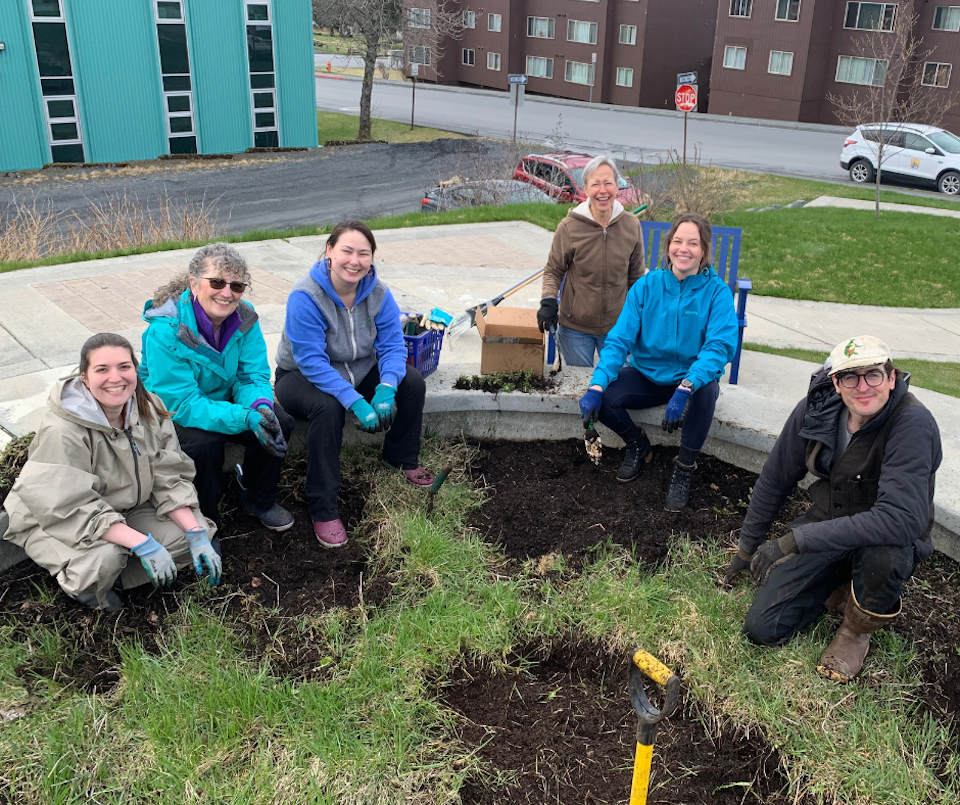
Spring Clean Up Day
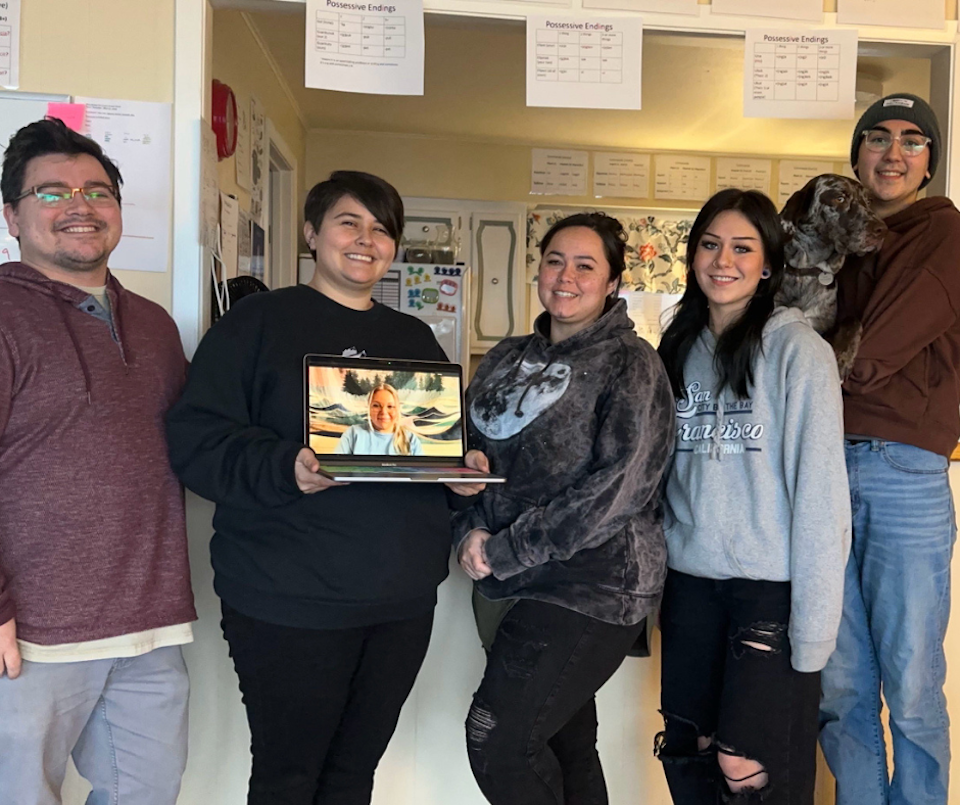
Language Lessons
The Alutiiq Museum welcomes all people of all ages, heritages, and abilities to our events. For more information about an upcoming event, assistance with a special need, or to partner with the museum on an event, please contact Djuna Davidson, 844-425-8844.
Upcoming Events
Click on a date to see the day’s events.
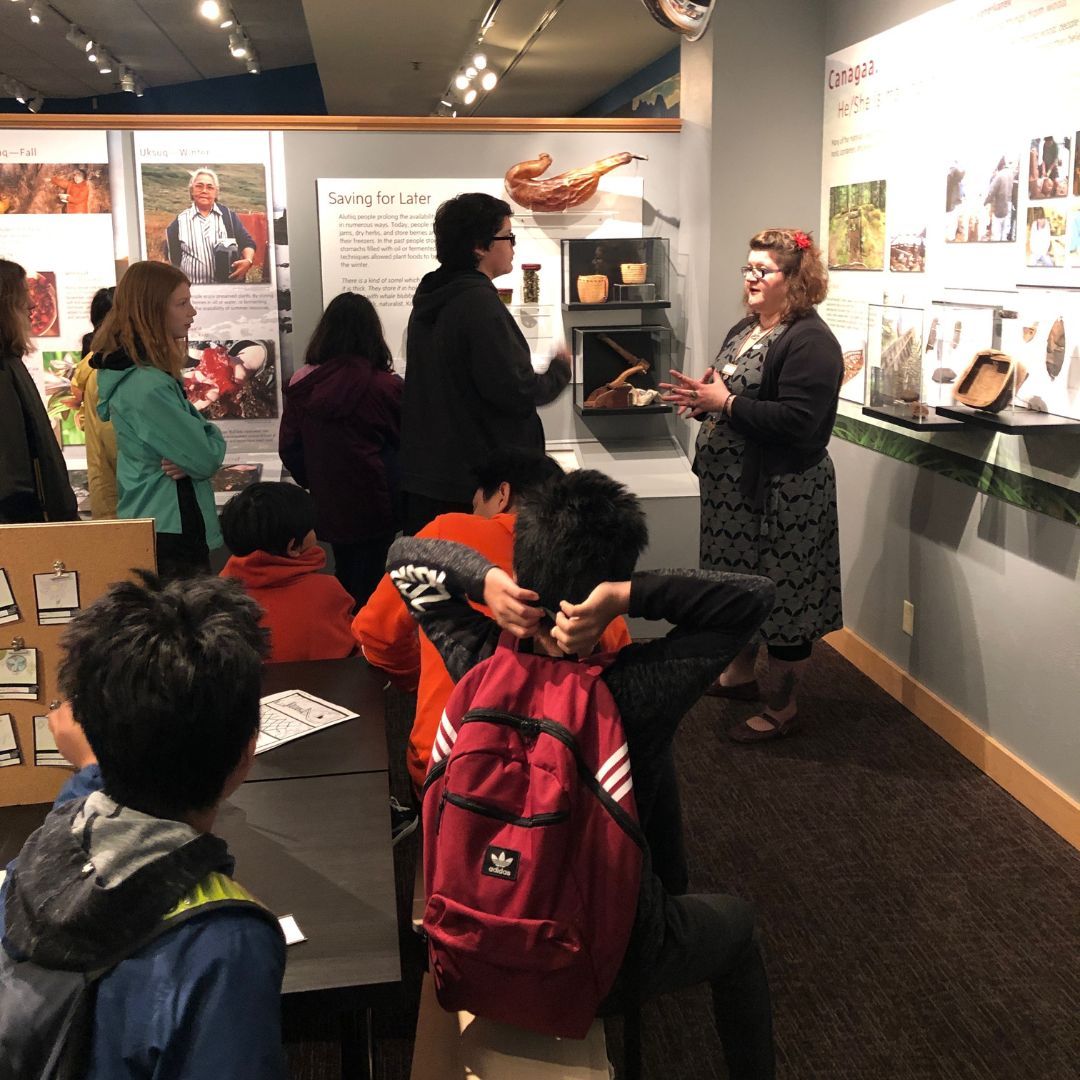
Djuna Davidson leads a museum tour.
Educators Open House
WITH ALUTIIQ MUSEUM STAFF
Join us for a free open house to tour the museum’s new exhibit hall with staff members. Learn about our educational resources and browse displays. Supported by the Munartet Project, Alaska State Council on the Arts, and the Alaska Office of History and Archaeology.
All educators welcome.
June 2, 2025, 10:00 am
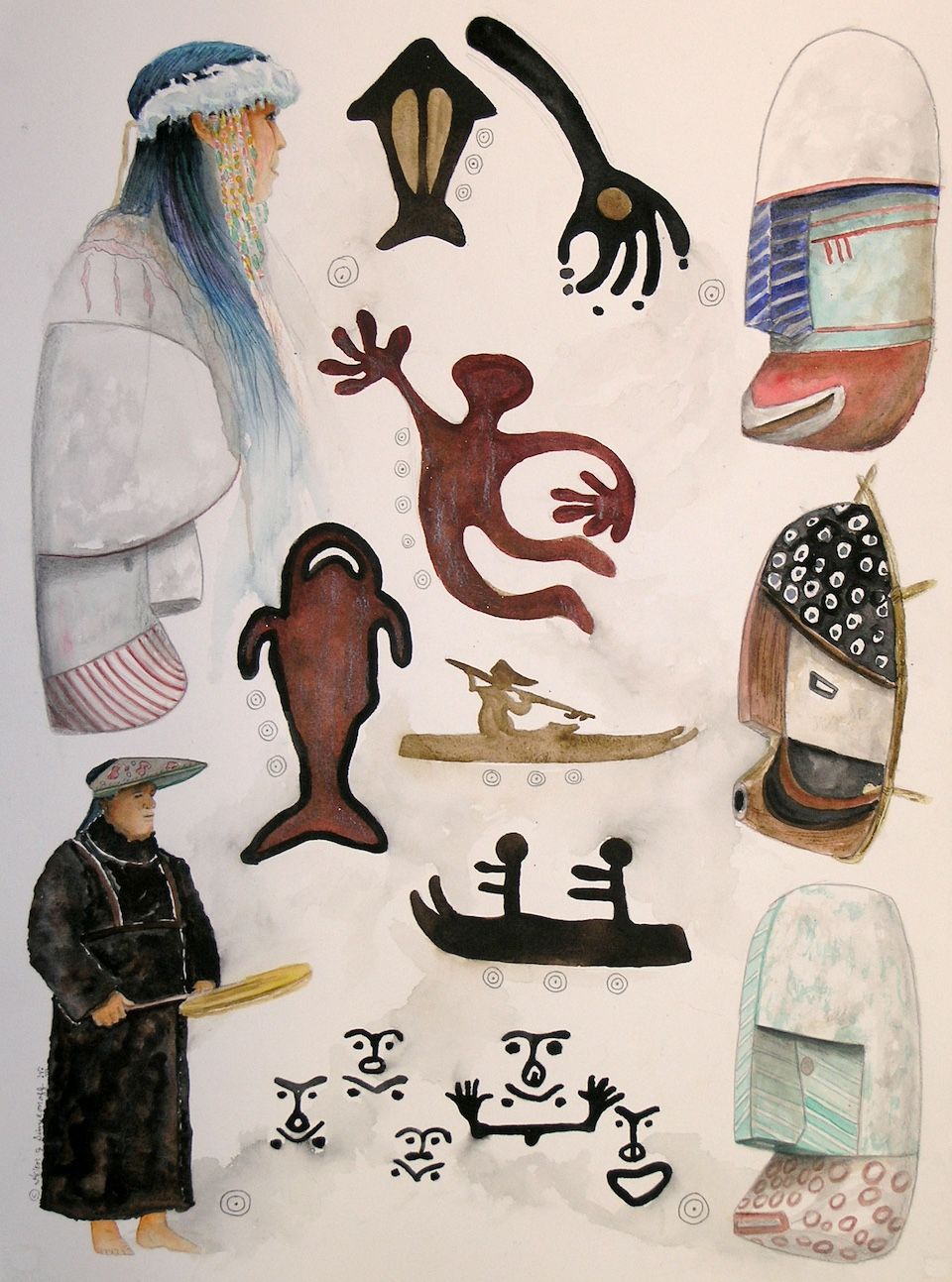
Sugpiaq Culture, Watercolor painting by Helen Simeonoff, 2008
Alutiiq/Sugpiaq Cultural Orientation
ONLINE PRESENTATION
The Alutiiq people have lived on Kodiak Island for 7,500 years. Our culture has adapted due to environmental, social, and political changes. Staff members provide an introduction in this free presentation open to all. Please pre-register so we can accommodate all guests.
June 12, Noon on Zoom
Join the meeting
Meeting ID: 258 784 606 505
Passcode: nN6HZ7y5
Future presentation dates: August 14, October 23, and December 18.
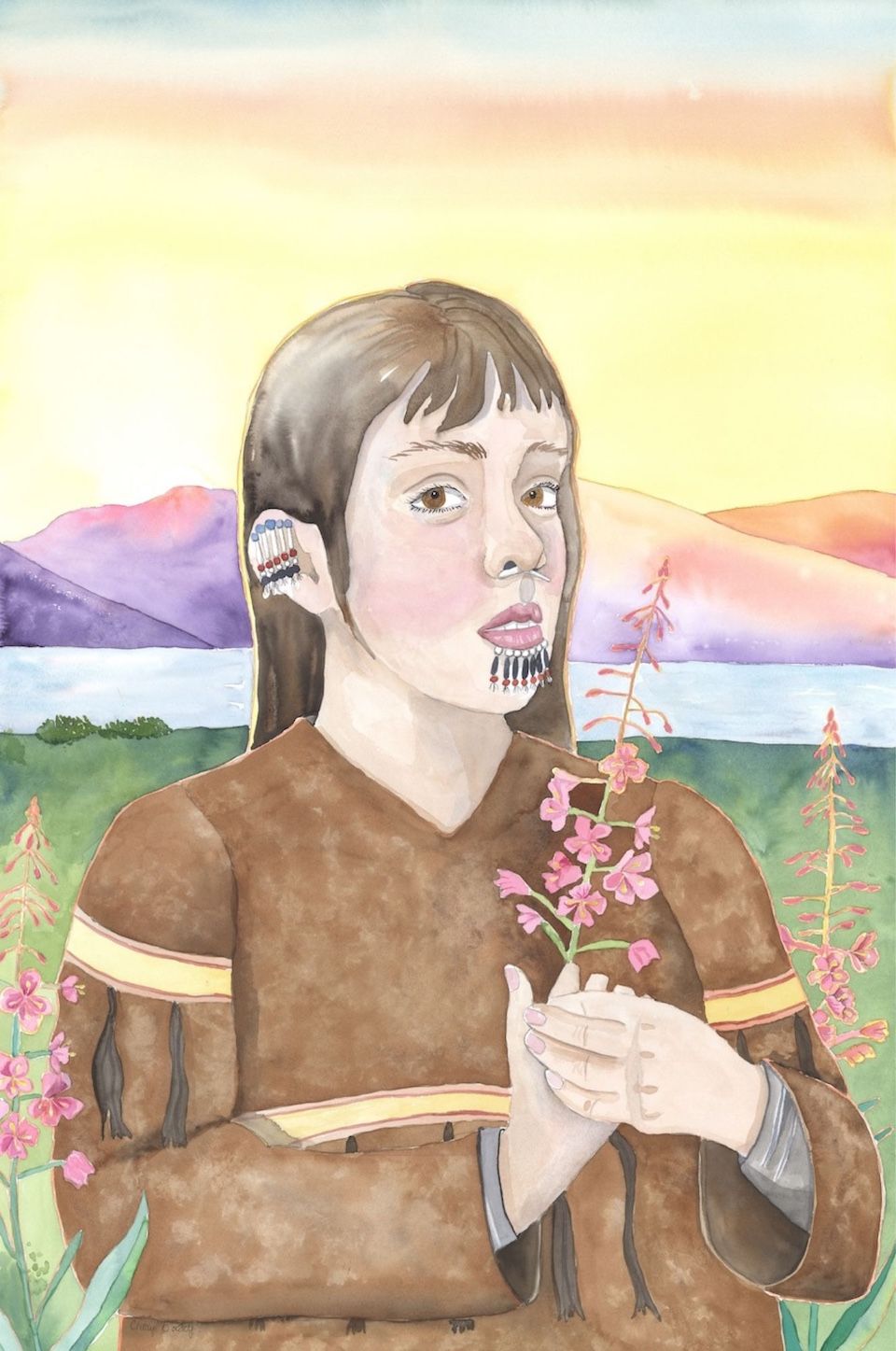
Sugpiaq Culture, Watercolor painting by Helen Simeonoff, 2008
Cuumillapet—Our Ancestors
NOW SHOWING
In 1818, a Russian watercolor artist captured the faces of Alutiiq ancestors. In 2023, Sugpiaq artist Cheryl Lacy repainted these images, capturing ancestors’ faces and clothing, and adding colorful backgrounds to bring the images to life. This exhibit showcases her 11 paintings, accompanied by information about the original portraits.
Generously Supported by the Alaska State Museum, The Frame Shop, Museums Alaska, The CIRI Foundation, and Rasmuson Foundation.
Available in the Living Culture Gallery adjacent to the Museum’s lobby during business hours. There is no charge to visit this space.
Cultural Support for Community Events
Celebrating and acknowledging Alutiiq/Sugpiaq heritage can be a valuable part of a community event and the museum has resources to help.
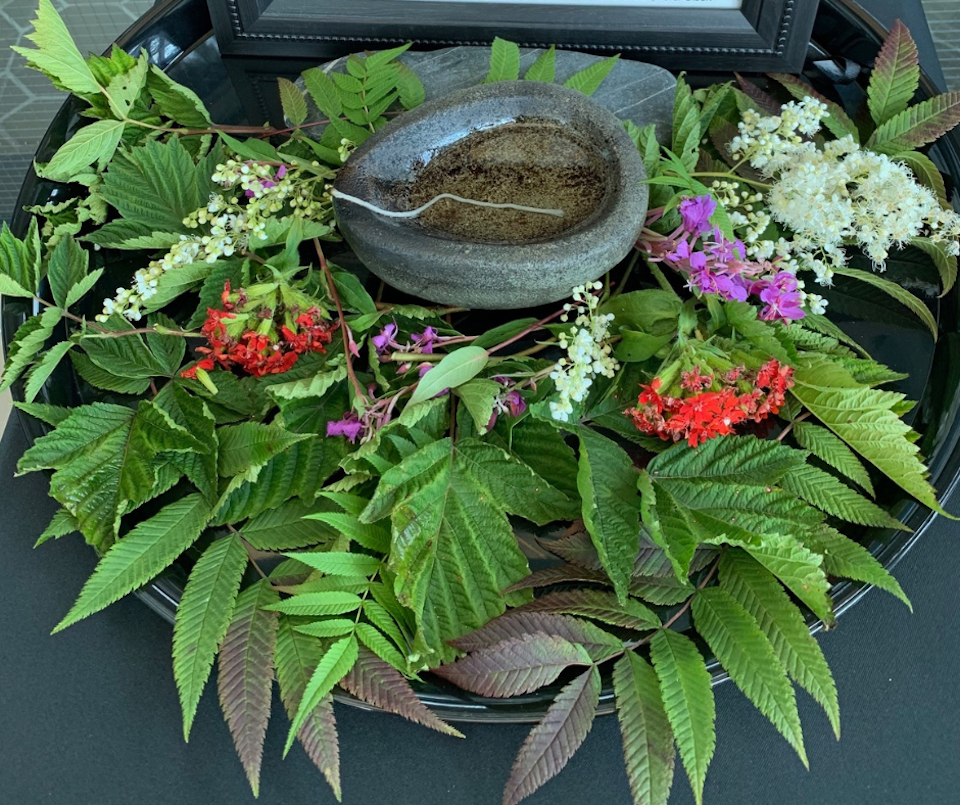
A lamp prepared for lighting
Lamp Lighting
The Alutiiq Museum has ancestral stone lamps that can be checked out for use at a lamp-lighting ceremony. Contact Amanda Lancaster, 844-425-8844, to request the loan of a lamp.
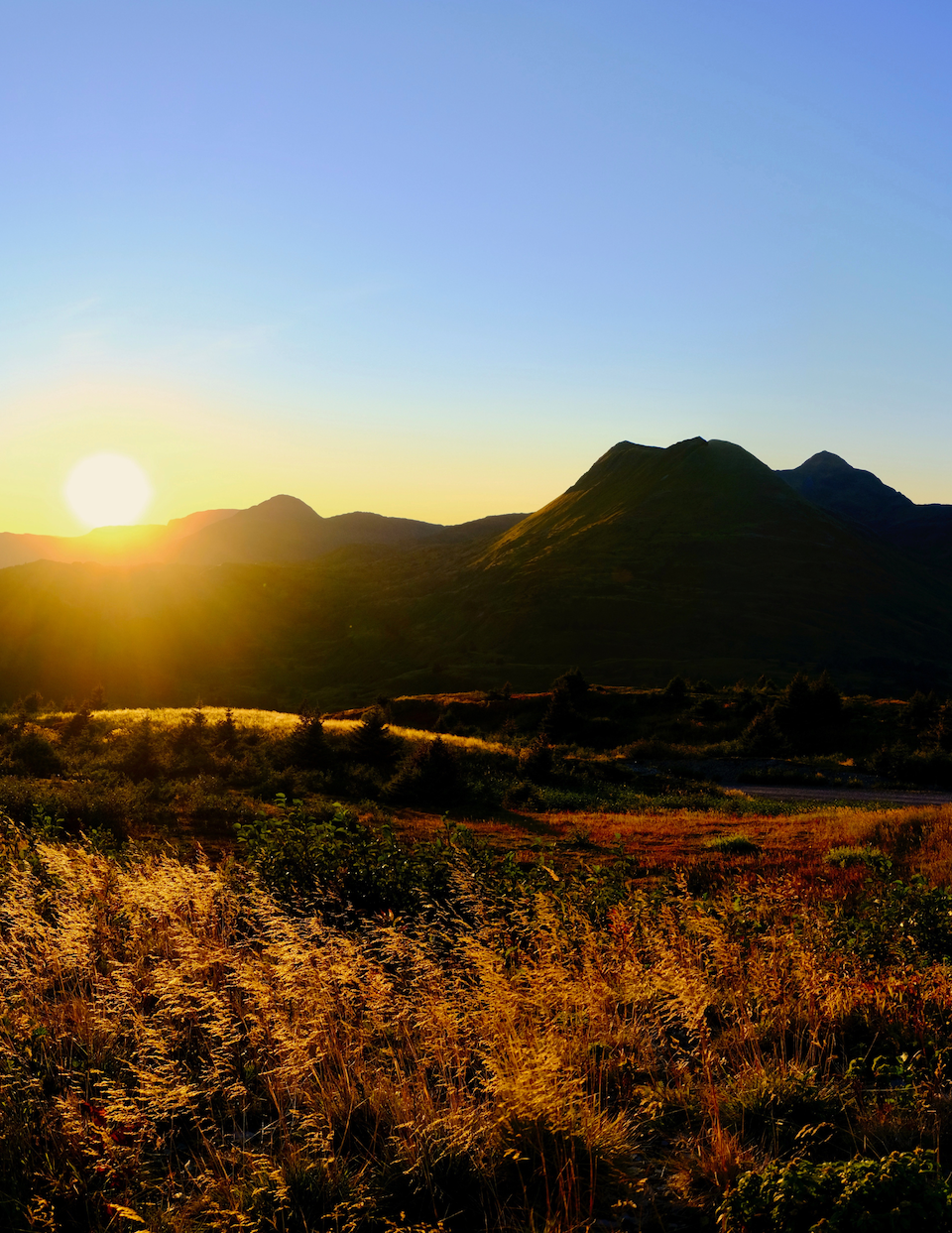
Sunrise over the Kodiak Mountains
Land Acknowledgement
Land acknowledgments offer a commitment to understanding local history and Native homelands, as well as the treaties, tribal status, and governance of an area. Such acknowledgment is typically offered by a visitor to the region or a person who is not a member of the local Native community. This could be a non-Native person or someone from a different tribal nation. There is no single correct way to acknowledge indigenous lands and territories. As such, land acknowledgments should be carefully planned and customized. For example, they can be read aloud at gatherings or meetings, posted in meeting spaces, shared online, and included in printed materials.
